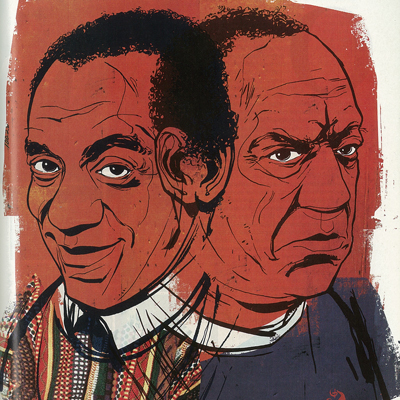The curious case of Bill Cosby, black America, and the dark accusations of 13 different women. If you hadn’t heard of Cosby’s alleged dark side before this past week, chances are you know about it now. In the early 2000’s, Cosby went on a “call-out tour,” traveling to some of the nation’s most destitute cities to talk with their residents about the reasons many of them remain trapped in poverty. The tour was harshly criticized at the time, though it’s mostly been forgotten. During this same period, a number of women began accusing Cosby of having drugged and sexually assaulted them. Again, it got some press coverage at the time, but faded from view. But the whole question of Cosby’s dark side has resurfaced, due largely to the horrendous PR move to “meme” Cosby on Twitter. As we’re forced to re-examine the man, who had been so widely-admired, this 2006 essay by Robert Huber in Philadelphia Magazine provides useful insight into Cosby’s story from the midst of his infamous tour. It has broad implications about race and sexual violence, but also about the cult of celebrity, storytelling, and maybe even reality.
“He did a lot of good works behind which he could stash his crimes of excess.” — Tamara Green
Our stories must be told a certain way. That is why Bill Cosby is holed up, on a hot late-April afternoon, in a convention center in Greenwood, Mississippi. There are maybe 300 folks, overwhelmingly black, in a hall that seats several thousand, where Cosby has come to “call out” to the community, to talk direct and tough. To get the folks to believe that if they want the mess of their lives to change, they’ve got to do it themselves, and stop thinking and acting like victims. He is prancing back and forth in sweatpants and a pullover, diving into the sparse audience to ask questions and make demands, but also flirting with that wide elastic face of his — of course, the crowd is easily his.
“Those of you who are living with someone on drugs,” he tells them, “you don’t even hide your stuff anymore, because they know where to look.” Cosby mugs the foolish ignorance — “How did she know to look in the washing machine for the money?” — and gets titters of recognition, but he isn’t fooling around.
After the call-out, Cosby sits in a private room, alone with one woman.


